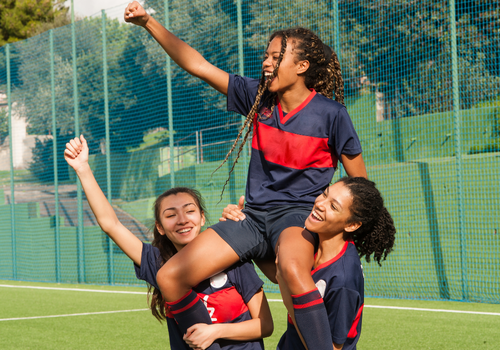Maximizing Performance and Well-Being in Student Athletes:
The Role of Neuropsychological Testing and Therapy in Athletics
By Dr. Nyaz Didehbani, PhD
—
Athletes operate in a uniquely demanding environment. Whether they are 12 or 20, Student athletes juggle rigorous academic schedules, intense physical training, competitive team and social pressure, and the transition to independence—all while navigating critical phases of brain development. In this high-stakes context, tools like neuropsychological testing and therapy can make a difference.
The Mental Game: Why It Matters
Success in sports isn’t just physical—it’s deeply mental. Focus, decision-making, resilience, and emotional regulation all play pivotal roles in performance, enjoyment of the game and self-confidence. When an athlete is struggling—whether it’s due to stress, concussion, ADHD, anxiety, or learning difficulties—their game and overall well-being can suffer. Recognizing these signs early and responding appropriately is key to getting back to the game they love.
What Is Neuropsychological Testing?
Neuropsychological testing is a comprehensive evaluation that examines cognitive functions such as memory, attention, processing speed, executive functioning, and emotional regulation. It’s not just about identifying problems—it’s about understanding how an individual's brain works and how to optimize performance.
For athletes, this can be especially useful when:
Recovering from a concussion or head injury.
Navigating academic difficulties alongside a demanding training schedule.
Showing signs of ADHD, anxiety, depression, or behavioral concerns.
Experiencing unexplained declines in performance or motivation.
Needing accommodations for exams, standardized tests, or academic load.
Key Benefits:
Initial testing may serve as a baseline for cognitive functioning post-injury.
Informs decisions about return-to-play protocols.
Identifies learning or emotional challenges impacting both school and sport.
Helps develop tailored strategies to optimize performance.
The Role of Therapy
Therapy can be brief with targeted interventions within a short timeframe—perfect for busy young athletes who need quick, practical solutions. Therapy can also be continuous to address the ongoing demands of athletic competition alongside daily life.
Therapy techniques (like Cognitive Behavioral Therapy, solution-focused therapy, and mindfulness training) can:
Reduce performance anxiety and stress.
Improve focus and emotional regulation.
Strengthen coping mechanisms for setbacks, losses, or injury.
Support identity development beyond the athletic role.
These interventions are not just reactive—they’re proactive tools that empower athletes with lifelong skills.
A Winning Combination
When combined, neuropsychological testing and therapy offer a holistic approach to student athlete development. Testing provides the roadmap; therapy supplies the vehicle. Together, they:
Personalize support, based on the athlete’s cognitive and emotional profile.
Equip athletes, coaches, and educators with insights to better guide the athlete.
Prevent long-term mental health issues by addressing them early.
Foster resilience, autonomy, and well-rounded success.
At BHD, we understand that student athletes and their families have unique needs. If your student athlete needs support or you’d just like to explore opportunities, give us a call at (214) 383-8145.


